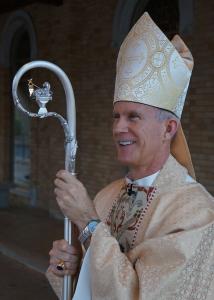
Sophists like to generate generalizations; through them, they find it easier to create the equivocations they need for the rhetorical flourishes they like to use in their arguments. While they often act as if truth, or facts, are what they are interested in pursuing, their rhetoric serves to undermine it. Their arguments come for the sake of one ideology or another, one which they have either come to accept, or one which promises them the most personal gain if they promote it. They find such a rhetorical argument makes it easier for them to make their defense as it often makes their interlocutor appear to be the one who is problematic, not then, because they try to make what is being criticized appear to be something which it is not, something which few, if any would ever criticize. We can see this is the way many try to defend Donld Trump’s actions following the 2020 election; they suggest that he is being charged as a criminal, not for something he did, but merely because he told others his opinions concerning the 2020 election. That is, they try to make it a free speech issue, indicating Trump’s opponents want to disregard his freedoms, and so are the ones who are undermining democratic principles by charging him crimes. They want Trump’s critics to be viewed as hypocrites, suggesting that many if not most of them have also openly criticized election results in the past.
If one looks to Trump’s indictments, he is not being charged for making the claim that he won the 2020 election, nor for saying he believed Biden won due to fraud, but for what he did in relation to those claims. He did not use the legal process, but rather, tried to subvert it, having people place him in the presidency without any consideration of the results of the 2020 election. He did this by orchestrating a way to have fraudulent electors used at the Electoral College.
Just as many use sophistic equivocations to undermine the charges against Trump, we find many who suggest that Pope Francis is promoting heresy or immoral actions are being defended by the claim that all they are doing is offering Pope the kind of criticism which he needs, not that they are trying to undermine his authority or position within the church. That is, they point out that there is nothing wrong with offering charitable criticism to the Pope, indeed, that Popes can be and are often criticized in this fashion. They often suggest that those who contend against their criticism are hypocrites because many of them are the same people who criticized other Popes, like St. John Paul II or Benedict XVI.[1] The issue, however, is not whether or not someone can criticize the Pope, but the kind of criticism which is being used. Certainly, people can question the Pope, but they must do so in a charitable fashion, showing they understand what the Pope has said and done instead of misrepresent it, and use such a misrepresentation to claim the Pope is a heretic. Except for radical traditionalists who were not in communion with St. John Paul II and Benedict XVI, the kind of criticism they received did not suggest they were heretics, but rather, was of a different nature, looking to what is possible, to see how theological concepts and Christian praxis could develop. Those who suggest Pope Francis is a heretic are implying he might not be a legitimate Pope, and should not be seen as a Catholic authority. This is quite different from legitimate criticism which can be, and historically has been given, to Popes. Again, to accuse the Pope as being a heretic and should no longer be considered a Catholic authority is quite different from disagreeing with a theological opinion of the Pope and engaging that disagreement in a sound and just fashion. Those who claim or hint that Francis is heretic are using that to ferment resistance to him and what policies and positions he engages while Pope. It is such resistance, and the claims which is used to promote it. which is at issue, not criticism in and of itself.
From my own personal experience, those who I encounter that support the generalizations used to defend Trump also are those who support such generalizations in response to Pope Francis’s critics. It is clear to me that they are not being honest dialogue partners. Many do not believe what they are saying, they just hope that they can have people engage their rhetoric so as to divert attention from the real issues at play. And yet, others, often those who listen to them, seeing such arguments employed by many within their social networks, come to believe them, and so begin to believe such arguments are valid. This bodes ill for the future, for now, it means, many other wrong-doers will be able to employ the same kind of argument to defend themselves. A drunk driver could say they were arrested for driving on the road, and if they were arrested for that, anyone could be and should be arrested for driving as well. A pedophile who had sex with a minor could say that they were just having sex, and if they were arrested for having sex, all who have sex should also be punished. A murderer who used a knife to kill their victim could say they were convicted for using a knife, and if that is a criminal offense, anyone who eats with knives should be imprisoned. Such examples should show how and why this rhetorical flourish is invalid, as few would take these arguments seriously if they were being used by drunk drivers, pedophiles, or murderers. Why, then, is it the tactic used by those in positions of power and authority, such as Republicans in Congress trying to defend Trump or bishops in the United States fighting against Pope Francis?
Much of it is the result of ideology, that is, believing in a particular ideology, and supporting it through all possible measures. They promote their ideology as a moral imperative. Their ideology is so important that, gaslighting and similar dishonesty are acceptable. Their ideology is treated as the ultimate and final good; those who stand with it and promote it are to be seen as morally superior to those who do not. Many become so trapped by a particular ideology they become blind to what they are doing and saying, that is, they are incapable of seeing the error of their ways and their arguments. Their rhetoric becomes used as a mask to hide the truth, not from the public at large, but from themselves and their supporters. Those who tell a lie many times often end up believing in their own lies, and so those who put on a mask to defend their ideology end up believing the mask itself is not a mask hiding an inner reality but is that inner reality itself. Others know they are putting on a mask, that they are lying, and have no problem doing so; they do so because they see it is necessary to gain the power they need so they can impose their ideology upon the world. They will act as if their lie is the truth, but they know differently. They are even willing to sacrifice themselves and their own livelihood if they think by doing so, they can put their ideology into practice and have those who stood against them suffer more than they ever have. And so, they have established a false morality centered upon their ideology and its adherence, one which says they are to sacrifice themselves, others, even the truth, in order to preserve and protect it – confirming Christos Yannaras when he wrote:
If we accept morality simply as man’s conformity to an authoritative or conventional code of law, then ethics becomes man’s alibi for his existential problem. He takes refuse in ethics, whether religious, philosophical or even political, and hides the tragedy of his mortal, biological existence behind idealized and fabulous objective aims. He wears a mask of behavior borrowed from ideological or party authorities, so as to be safe from his own self and the questions with which it confronts him.[2]
To be sure, many of those acting so dishonestly are not convinced by their own arguments. They certainly don’t convince others by them. But that doesn’t matter. It is all a mask used to hide the inner nature of their ideology from themselves so that they will not have to deal with its innate problems, problems which are easily discerned when the true nature of their ideology is not hidden from view. They also try to use their arguments to portray their critics or opponents as hypocrites, but in doing so they only reveal their own inner hypocrisy, for all they do is for show, it is all bluster to help them get or remain in power. “Hypocrisy, while it desires to captivate the eye, becomes itself captive to the eye.” [3] As religion is seen as a tool for power, it is not surprising it is being used by ideologue who want to make themselves appear holy and religious to the people, which is why so many of those who back Donald Trump make him into a messianic figure, or those who contend against Pope Francis try to appear as if they, not the Pope, followed authentic Christianity. But again, such religiousness is deceptive, as all hypocrisy is:
That righteousness, however, which is hypocrisy is not righteousness: it is deceptive to the eye, it is false in appearance, it mocks those who see it, it lies to those who hear it, it seduces the crowds, it leads people astray, it sells its reputation, it buys applause, it is done for the world, not for God; it grabs recompence in the present, it does not look for any reward in the future; blind itself it blinds eyes; without sight itself it desires to be seen. [4]
True holiness, true morality, is always tied with love, love for God, and for one’s neighbor. Ideologies which seek to explain away love for neighbor, such as those who call social doctrine and its expectations as “woke” to be rejected, never attach themselves to true holiness, though they will make the appearance of it; this is why culture war narratives, which look to various minor issues or sins and make them more important than they are, will never present to us the path to holiness, as it is all a front for the public, being used to explain away and ignore the most serious faults and sins in society (such as the mistreatment of the poor and needy). Pope Francis, by pointing out what is truly important, undermines such culture war claims; this seems to be one of the reasons why he is being attacked. Obviously, he is not impeccable, and people can find things to criticize about him, but honest criticism would be done in charity and not make outrageous claims such as he is a heretic or that he is leading the church to hell.
It is important for Christians to embrace the fullness of truth, and so, to embrace truth as love, and love as truth. Sophists who seek power through ideology, however, will pretend to embrace both, but their actions show they embrace neither. They will attack the sins and mistakes of others, doing so with all the power and might they have; they do this in order to keep their critics, those who disagree with them, down, but when their own mistakes, their own sins, their own evils are exposed, they will do all they can to make it appear that they have done nothing wrong. With the rampant use of such sophistry in both the political and religious sphere, it is clear, ideologies are being exposed, and those who follow and use them are doing all they can to nullify such exposure. We must not let this happen. They are not interested in freedom for others, only for themselves. If they get what they want, if people give them the benefit of the doubt, they will never treat others similarly – after all, is that not what we see when many of those who say they should be free to say whatever they want are also those who are the first to demand various textbooks and philosophical positions not be taught in schools?
[1] Many critics of John Paul II and Benedict XVI were censured or criticized for possible heresy themselves, even if they did not suggest those Popes were heretics. Many of those who are upset with Francis and criticize him were among the first to promote such claims of heresy of those who criticized previous Popes, but now decry any criticism of them as being some sort of tyranny.
[2] Christos Yannaras, The Freedom of Morality. Trans. Elizabeth Briere (Crestwood, NY: St. Vladimir’s Seminary Press, 1984), 15.
[3] St. Peter Chrysologus, Selected Sermons. Volume 2. Trans. Willam B Palardy (Washington, DC: CUA Press, 2004),36 [Sermon 7].
[4] St. Peter Chrysologus, Selected Sermons. Volume 2, 48 [Sermon 9].
Stay in touch! Like A Little Bit of Nothing on Facebook.
If you liked what you read, please consider sharing it with your friends and family!
N.B.: While I read comments to moderate them, I rarely respond to them. If I don’t respond to your comment directly, don’t assume I am unthankful for it. I appreciate it. But I want readers to feel free to ask questions, and hopefully, dialogue with each other. I have shared what I wanted to say, though some responses will get a brief reply by me, or, if I find it interesting and something I can engage fully, as the foundation for another post. I have had many posts inspired or improved upon thanks to my readers.













